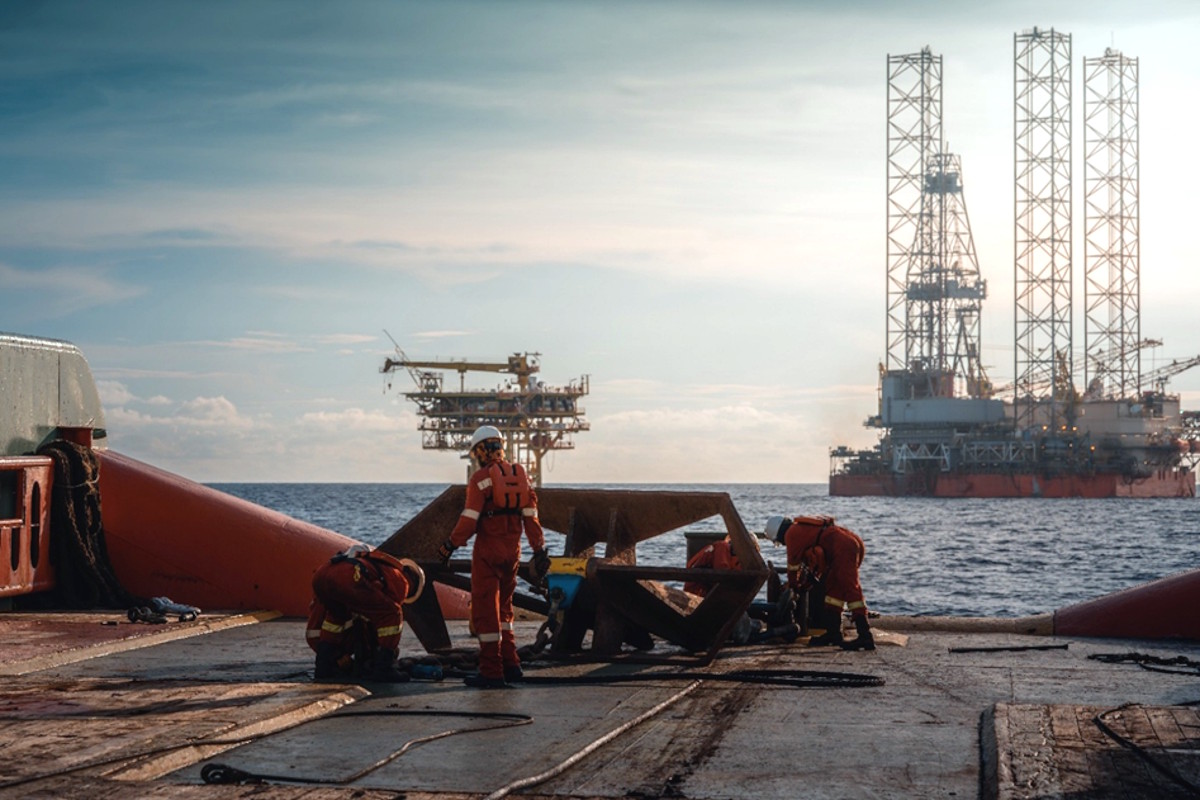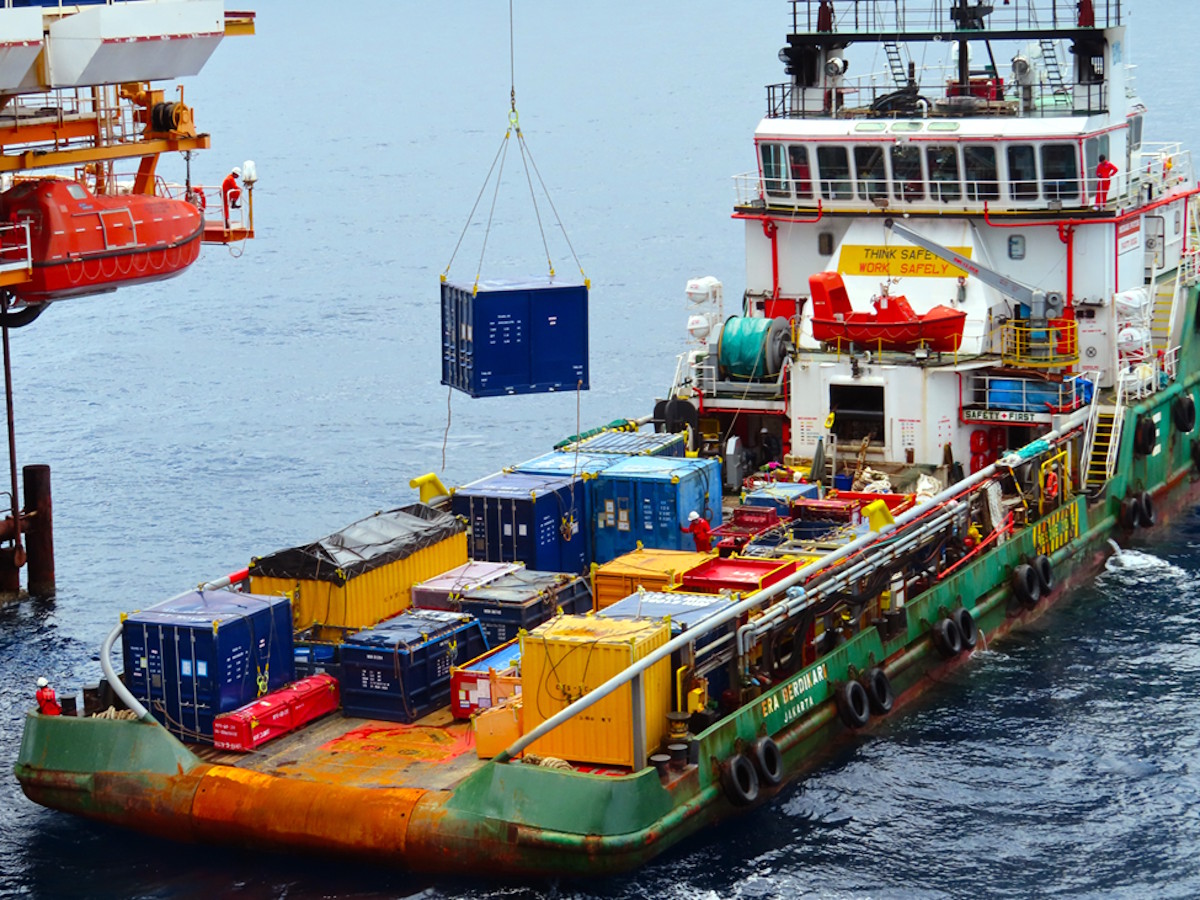Entry Level Offshore Jobs
Offshore Oil Rig and Maritime Job Opportunities
From Dirt Roads to Deepwater: How I Broke In
No experience? No problem!
I wasn’t born into this; I was a broke welder chasing a better life, burned out on dead-end work. I’d heard about the big checks and time off, but when I went looking for a real roadmap on how to get hired—first call, crew-change plan, anything—I hit nothing but dead ends.
Welding paid, sure, but it wasn’t offshore money. Somebody said, “Try Venice, Louisiana. Hang around the helipads.” So I hauled down there, parked, and waited. Nothing. Choppers in, choppers out — nobody had time for a rookie.
I was about to leave when an old timer in coveralls gave me the once over:
“You lookin’ to go offshore?”
I nodded.
“Ain’t nobody hiring down here. Get the Yellow Pages from Houston, Lafayette, New Orleans — start callin’ offshore drilling companies. That’s your best bet.”
That wasn’t what I wanted to hear, but I did what the old timer said. I got the Yellow Pages and started calling every offshore drilling company, oil company, and supply boat company I could find.
Same damn thing, over and over:
“You got any offshore
experience?”
“No.”
Click.
That’s the offshore catch-22 — you need experience to get hired, but you can’t get experience unless somebody gives you a shot. If you’ve been looking for offshore work any length of time, you’re well acquainted with it.
Then came the bar. The beer. And a chance run-in with a crane operator named T-Bone Boudreaux — a crusty ole Cajun hand, thick skin, thicker accent, heart of gold. He listened to my story, finished his drink, and said, “Call this number Monday morning. Tell ’em T-Bone sent you.”
That call changed everything.
Next thing I knew, it was full throttle — shots, passport, visa, then a flight to Brazil for a welding job that paid more than I’d ever seen. That first hitch turned into decades offshore… and later, this book: Your Pathway to High-Paying Offshore Jobs.
One old Cajun took five minutes to help a rookie find his start.
This site — this book — it’s my way of passing that same golden ticket on to you. Right now, you’re probably thinking: “How’s a book gonna get me hired?” Give me 20 seconds.
Over the past 40 years, I’ve learned the hard truths about getting hired offshore—paid for with busted knuckles, missed flights, and a few hard-headed bosses who thought they knew it all. I won’t lie: every now and then, providence—what most folks call luck—showed up and leveled the field. And when it did, I was ready, because I’d already done the work.
I didn’t start with a fancy school or any kind of plan — just a lucky break and a Cajun named T-Bone who threw me a lifeline. I was broke, bone-tired of dead-end work, and guessing. He gave me a number, I made the call, and the door cracked open — not because I was special, but because I was ready and kept pushing.
Out here, the pattern’s simple: do the work, stay in the fight, and when providence shows up, you’re already in position to move.
I wrote Your Pathway — not to pitch you a book, but to hand you the map I wish I’d had on Day One. Real steps, real companies, and what actually gets you from applicant → chopper manifest → paycheck.
This is what I’ll personally be helping you with:
- Where to apply now — real companies, real contacts (not dead job boards).
- How to beat the “no experience” wall with moves that actually get callbacks.
- The step-by-step path: applicant → chopper manifest → paycheck.
- How to get your TWIC card fast and avoid common hang-ups.
- How to fix your résumé so it passes ATS and gets callbacks (layout, keywords, proof).
- How to follow up until they know your name — emails, calls, cadence.
- Interview prep — what they’ll ask, how to answer, and how to close strong.
- How to avoid scams and time-wasters before they waste you.
Bottom line: There’s no magic here. Not a secret list. Not a master class. Not some insider handshake. No AI “guru” shortcuts. Do the work, in order, till you get hired or you hang it up. There is no other way. I should know — I wrote the book.

End of hitch & homeward bound.
Want to Work on an Offshore Drilling Rig? Here’s the reality:
You fly in by chopper. Work 14/14.
Start around $50K–$65K+ your first
year—while working roughly half the year.
Meals, housing, laundry: included.
Life on Board:
- Newer rigs (especially modern floaters and drillships) often have gyms/weight rooms, game rooms/pool tables, TV lounges, and internet cafés (sat TV, shared PCs; occasional cabin Wi-Fi), saunas/wellness areas, and occasional sport rooms on some large platforms.
- Older jack-ups and semis are simpler — maybe a treadmill and a TV room.
- 6th/7th-generation rigs and some FPSOs can feel like small floating towns.
Early-Career Advice:
Focus on experience first — comfort comes later. Aim for
six months of verifiable sea time. Old boat or new boat, it all counts. Stack your days; then get
selective.
What Actually Moves You from Applicant → Hired
- Mindset: Dependable, safety-minded, and ready to work.
- Playbook: Your Pathway — step-by-step guidance on breaking in and moving up.
- Gate pass: TWIC card. No TWIC, no dock access.
- Résumé that works: ATS-clean, targeted, and offshore-ready — built for callbacks.
Companies Hiring Now: Entry-Level Roles
- Roustabout — rig up/rig down, paint, grease, load pipe. $175–$275/day (≈ $40K–$65K+)
- Utility Hand — clean, assist, follow procedures. $150–$225/day (≈ $35K–$55K)
- Galley Hand — stock, clean, assist the cook. $150–$200/day (≈ $35K–$50K)
- Welder’s Helper — prep, grind, lift, support welders. $175–$225/day (≈ $40K–$55K)
- Deckhand (OSV) — lines, fenders, anchor ops. $175–$250/day (≈ $40K–$60K)
Tip: Don’t overthink the first hitch. Get six months of verifiable sea time; then get choosy.
❌ Top Offshore Myths That Keep People Stuck
- Myth #1: You gotta know somebody.
Truth: A referral helps, sure — but plenty get hired cold with a solid résumé and follow-up. - Myth #2: You need experience first.
Truth: There are around 100 entry-level offshore positions posted each week across the Gulf of Mexico. I’ll show you where they are and how to get hired. - Myth #3: You need expensive training.
Truth: BOSIET/HUET or a low-cost water-survival course can help. Avoid programs claiming “guaranteed jobs” or making unrealistic promises. - Myth #4: Offshore is dead.
Truth: Offshore markets ebb and flow. Even when one area softens, others are hiring—and reliable hands move where the work is. - Myth #5: It’s too dangerous.
Truth: Modern safety is strict. Follow the rules and watch each other’s backs, and you’ll be fine. - Myth #6: Offshore is for men only.
Truth: Women work offshore across the board — roustabouts, crane ops, engineers. Companies hire for ability, not gender.

Ability is what matters offshore.
Offshore doesn’t care who you are. If you can pull your weight, you’re part of the crew.
Market Snapshot
In many regions, opportunities are strong: new projects, expanding fields, and steady demand. With grit, basic certifications, and follow-through, it’s a good time to get moving. Offshore isn’t a cruise — but the compensation reflects the commitment.
No experience is required for many deckhand openings — but initiative, reliability, and safety awareness are non-negotiable.
Get your TWIC, keep a clean record, and be ready to work. Experience will come fast once you’re on the water.

Offshore isn’t a cruise — but the paycheck sure makes up for it.
Here’s How to Move from Applicant → Hired:
- Get Your Pathway — a clear, step-by-step guide for breaking in, even if you’re starting from zero. I’ll personally guide you through the next steps so you can start applying with confidence.
- Get your TWIC card — essential for dock and facility access.
- Fix your résumé — ATS-clean, targeted to the posting. It should read “offshore-ready” at a glance.
- Start applying — reduce searching, increase qualified applications.
Two Bonuses with the Book (lagniappe — “a little something extra”):
- Professional Résumé Critique — line-by-line markup, ATS checks, offshore keywords, and a send-ready version to increase callbacks.
- Companion Directory — 400+ companies hiring now with application links, roles, regions, and recruiter contacts so you can start applying tonight.
Sign-On Bonuses Are Back!
Because some areas of the offshore workforce are short on dependable hands, some companies are putting cash on the table—$1,000 to $1,500 hiring bonuses for brand-new roustabouts and deckhands. This is for experienced hands as well as first-timers.
Entry-Level Job of the Week:
Roustabout — Gulf of Mexico
Pay: $225/day starting
Location: Offshore
out of Fourchon, LA
Rotation: 14/14
Perks: Full benefits, room & board, gym, hot
meals
Requirements: TWIC, HUET/Water Survival, background/drug screen
Experience:
None required; training provided
Bonus Spotlight
Utility/Galley Hand — Offshore Services of Acadiana
Pay:
$1,000–$1,400/week
Schedule: 21/21 rotation
Location: Gulf of Mexico (catering
vessel)
Requirements: TWIC + basic safety certs; background/drug screen
A practical starting role for reliable, quick learners — strong pathway to other positions.
Want the Inside Track on Jobs?
Many openings never appear on public job boards. They get filled through:
- Internal referrals
- Walk-ins at the dock or office
- Direct company hiring boards
- Private recruiters
Your Pathway (Chapter 7) explains how to find these opportunities—and how to avoid scams and time-wasters. If you’re serious about breaking in offshore, here are your steps: grab the book, secure your TWIC, send me your résumé for your critique, and select 3–5 roles from the Companion Directory. I’ll stay with you through each step—until you’re hired or you call it quits.
- Grab the book
- Secure your TWIC
- Send me your résumé for critique
- Select 3–5 roles from the Companion Directory

That ain’t just cargo moving—it’s paychecks, careers, and futures in motion.